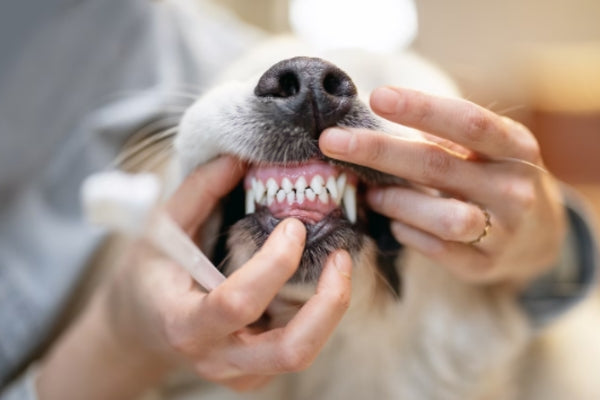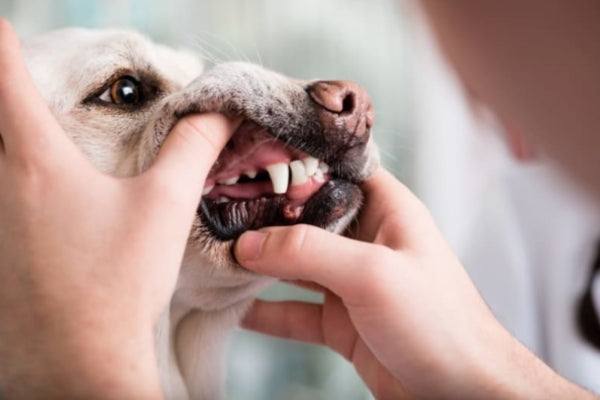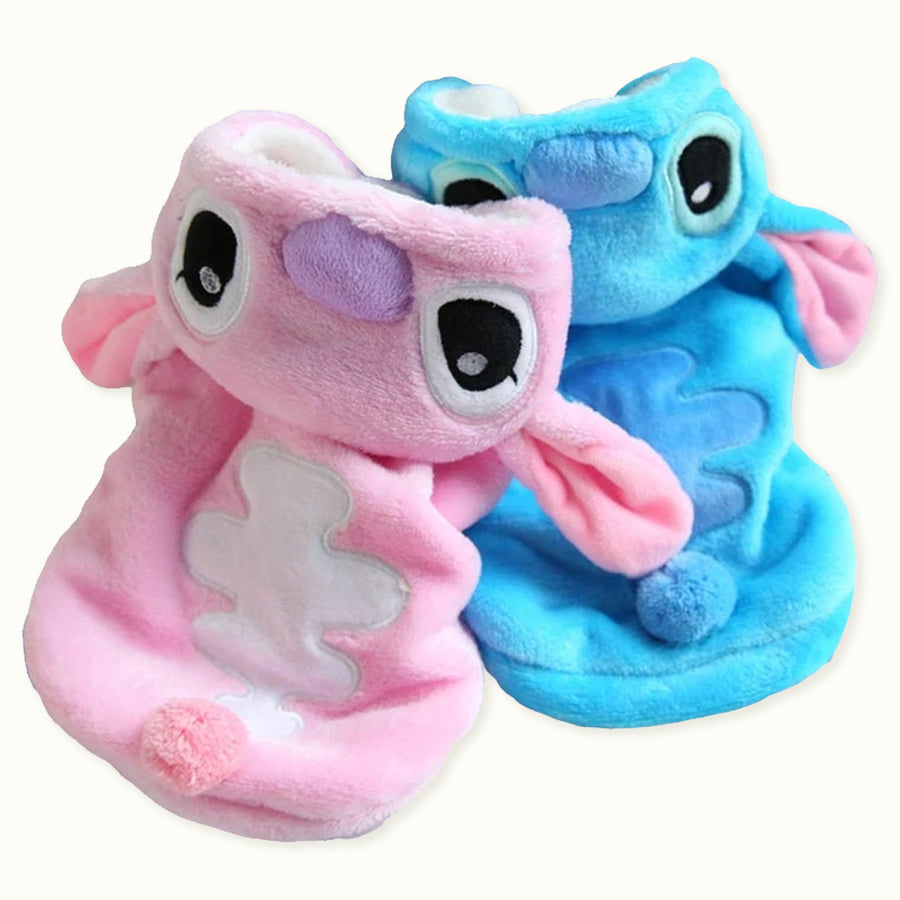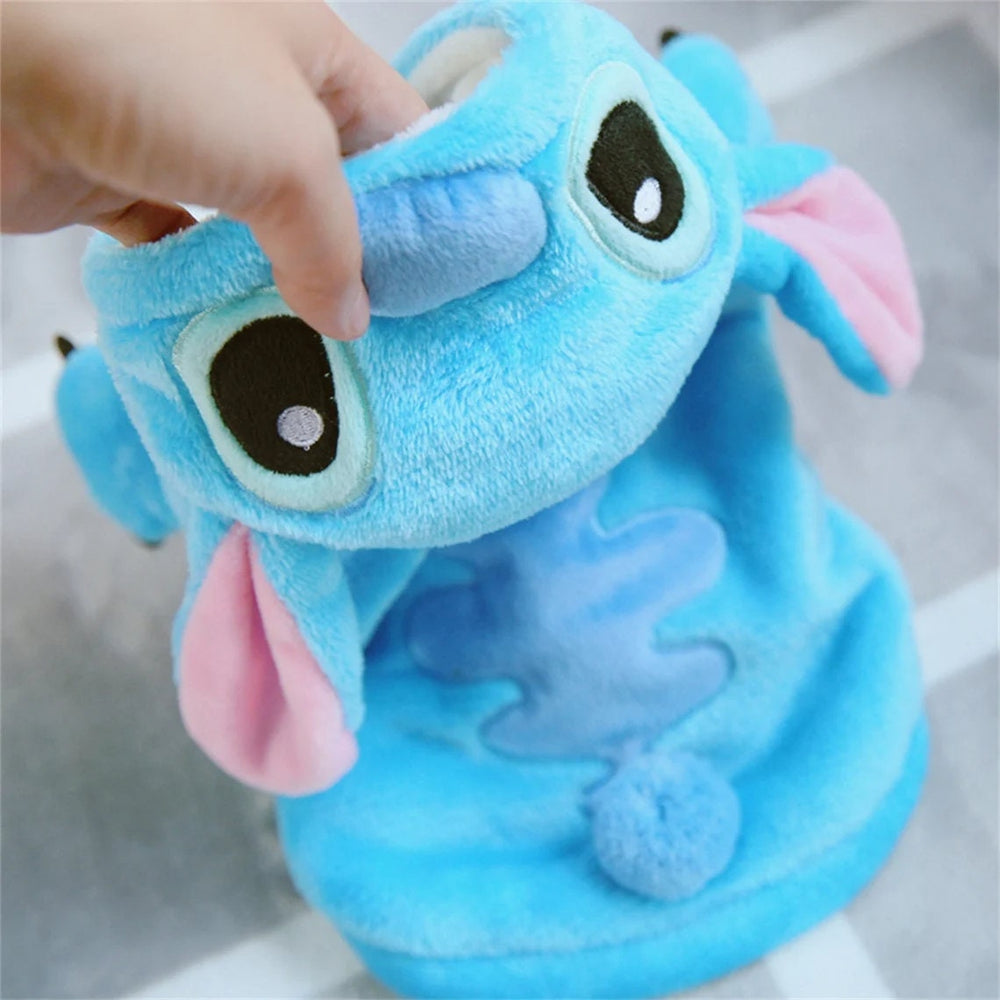Dog Dental Care Tips: 7 Ways To Keep Your Dog’s Teeth Clean And Healthy
Dogs need proper dental care just like humans do. Poor oral hygiene can lead to several health issues for your furry friend, including bad breath, tooth decay, and even systemic infections. As a responsible pet owner, it is important to prioritize your dog's dental health to ensure their overall well-being.
Fortunately, there are numerous ways you can keep your dog's teeth clean and healthy. In this guide, we will discuss 7 effective tips for maintaining your dog's dental hygiene. From regular brushing to a balanced diet and professional cleanings, these tips will help promote strong and healthy teeth for your beloved pup.
Why Dental Care Is Important For Dogs
Oral health is an essential aspect of your dog's overall health. Poor dental hygiene can lead to a range of problems, including:
- Bad breath: Just like humans, dogs can also suffer from bad breath. This can be caused by bacteria buildup in the mouth, which can result in foul odors.
- Plaque and tartar buildup: Without proper dental care, plaque and tartar can accumulate on your dog's teeth, leading to yellowing, decay, and even tooth loss.
- Periodontal disease: This is a common dental issue in dogs that can cause pain, infection, and tooth loss. It occurs when plaque and tartar have built up below the gumline, leading to inflammation of the gums.
- Systemic infections: If your dog's oral health is not properly maintained, the bacteria from their mouth can enter their bloodstream and cause infections in other parts of the body, such as the heart, liver, and kidneys.
- Difficulty eating: Dental problems can make it painful for your dog to eat, leading to a decreased appetite and potential weight loss.
It is important to address these issues early on to prevent them from becoming more serious and costly down the road. By prioritizing your dog's dental care, you can help them maintain good oral hygiene and overall health.
7 Tips For Maintaining Your Dog's Dental Health

There are a variety of ways you can keep your dog's teeth clean and healthy. Here are some tips to incorporate into your routine:
1. Regular Brushing
One of the best ways to maintain your dog's dental health is through regular brushing. Just like humans, dogs need to have their teeth brushed daily to prevent plaque and tartar buildup. It is recommended to start brushing your dog's teeth at a young age so they can become accustomed to it.
To brush your dog's teeth, you will need a toothbrush specifically designed for dogs and toothpaste that is safe for them to swallow. Do not use human toothpaste as it can be harmful to your dog's health. You can also opt for a finger brush, which can make it easier to reach all areas of your dog's mouth.
Gently lift your dog's lip and start brushing in a circular motion on the outer surfaces of their teeth. Make sure to also brush along the gumline as this is where plaque and tartar tend to accumulate. Be patient and take breaks if needed, especially if your dog is not used to having their teeth brushed.
2. High-Quality Diet
A balanced and nutritious diet is essential for your dog's overall health, including their dental health. Feeding your dog high-quality food can help promote strong teeth and gums. Look for dog food that contains essential vitamins and minerals such as calcium, phosphorus, and vitamin D.
Avoid giving your dog table scraps or sugary treats as these can contribute to plaque and tartar buildup. Instead, opt for treats that are specifically designed to promote good dental health, such as dental chews or toys.
Plus, a healthy diet can also help prevent other health issues that may affect your dog's dental health, such as obesity and diabetes.
3. Chew Toys And Dental Treats
In addition to regular brushing, chew toys, and dental treats can be beneficial for your dog's teeth. These toys and treats are specifically designed to promote good oral hygiene by scraping away plaque and tartar as your dog chews on them.
Look for dental treats that are low in fat and sugar, and have a textured surface to help clean your dog's teeth. Chew toys can also come in different textures, such as rubber or rope, which can help massage your dog's gums and remove debris from their teeth.
Be mindful of the size and durability of the chew toys you give your dog to avoid any potential choking hazards or damage to their teeth.
4. Annual Professional Cleanings
Just like humans, dogs also need regular dental check-ups and cleanings from a professional. It is recommended to have your dog's teeth professionally cleaned at least once a year, or more frequently if recommended by your veterinarian.
During a professional cleaning, your veterinarian will perform a thorough examination of your dog's mouth and remove any plaque and tartar that has built up. They may also take X-rays to check for any underlying issues with their teeth and gums.
Professional cleanings can help prevent dental problems from developing and keep your dog's teeth healthy and strong.
5. Monitor For Signs Of Dental Issues
As a pet owner, it is important to be aware of any signs or symptoms that may indicate a dental problem in your dog. Some common signs include bad breath, yellowing teeth, swollen or bleeding gums, and difficulty eating.
If you notice any of these signs, it is important to consult with your veterinarian as soon as possible. Early detection and treatment can help prevent more serious issues from developing.
6. Proper Teeth Cleaning Techniques
When it comes to brushing your dog's teeth, it is important to use proper techniques to effectively clean their teeth and maintain good oral hygiene.
Make sure to brush in a circular motion and reach all surfaces of your dog's teeth, including the back molars. Pay special attention to the gumline as this is where plaque and tartar tend to accumulate.
It can also be helpful to gradually introduce your dog to tooth brushing by starting with just a few teeth at a time and increasing the number each day until you can brush their entire mouth.
7. Regular Check-Ups With Your Veterinarian
In addition to annual professional cleanings, it is important to regularly take your dog for check-ups with their veterinarian. Your vet can perform routine dental exams and check for any underlying issues that may affect your dog's dental health.
They can also guide proper oral hygiene practices and suggest any necessary treatments or supplements to keep your dog's teeth and gums healthy.
By following these tips and incorporating them into your routine, you can help ensure that your dog maintains good dental health and overall well-being. Remember to be patient and consistent in your efforts, as it may take time for your dog to become comfortable with some of these practices.
Does My Dog Need A Dental Cleaning?
The answer to this question depends on a few factors, such as your dog's age, breed, and overall dental health. In general, it is recommended to have your dog's teeth professionally cleaned at least once a year by a veterinarian.
However, some dogs may require more frequent cleanings due to their individual needs. For example, small breeds and senior dogs are more prone to dental issues and may benefit from more frequent cleanings.
It is also important to monitor your dog's dental health at home and look for any signs or symptoms of dental problems. If you notice bad breath, plaque buildup, or difficulty eating, it is best to consult with your veterinarian as soon as possible.
Additionally, some breeds are more predisposed to certain dental issues, such as small breeds being more prone to dental overcrowding and large breeds being more susceptible to periodontal disease. It is important to research your dog's breed and understand their specific dental needs.
Regular check-ups with your veterinarian can also help determine if your dog needs a professional cleaning or any other necessary treatments.
Are There Any Risks Associated With Dental Cleanings For Dogs?
Like any medical procedure, there are some risks associated with dental cleanings for dogs. However, these risks are relatively low and can be minimized by taking certain precautions.
One potential risk is anesthesia. To perform a thorough cleaning, your dog will need to be under general anesthesia. This can be a concern for some pet owners, especially if their dog is older or has pre-existing health conditions. Before scheduling a dental cleaning for your dog, make sure to discuss any concerns or questions with your veterinarian.
Another risk is potential damage to the teeth or gums during the cleaning process. This is why it is important to have a professional perform the cleaning rather than attempting to do it yourself. A trained veterinarian will know how to properly clean your dog's teeth without causing any harm.
It is also possible for bacteria from the mouth to enter the bloodstream during a dental cleaning, which can lead to infection in other parts of the body. This risk can be minimized by ensuring that your dog's teeth and gums are healthy and free of any infections before the cleaning.
Mistakes To Avoid When Caring For Your Dog's Dental Health

Caring for your dog's dental health is important, but it is equally important to make sure you are not making any mistakes or taking shortcuts that could harm their oral hygiene. Here are some common mistakes to avoid when caring for your dog's teeth:
- Skipping professional cleanings: As mentioned earlier, professional cleanings by a veterinarian are crucial for maintaining good dental health in dogs. Skipping these cleanings or trying to do them yourself can lead to more serious issues down the line.
- Using human toothpaste: Human toothpaste often contains ingredients that are harmful to dogs if ingested. It is important to use specially formulated dog toothpaste when brushing their teeth.
- Not brushing regularly: Just like humans, dogs need regular and consistent dental care to maintain good oral hygiene. Make sure to brush your dog's teeth at least 2-3 times a week, if not more.
- Not using proper techniques: As mentioned earlier, it is important to use proper techniques when brushing your dog's teeth. Brushing in a circular motion and reaching all surfaces of their teeth will ensure a thorough cleaning.
- Not keeping an eye on their dental health: It is easy to overlook your dog's dental health, especially if they seem to be doing fine. However, it is important to regularly check for any signs or symptoms of dental issues so that they can be treated early on.
By avoiding these common mistakes and following the tips mentioned above, you can help ensure that your dog maintains good dental health and overall well-being. Remember to always consult with your veterinarian for guidance on proper dental care for your furry friend.
FAQs
Are Dental Treats And Chews Effective In Maintaining My Dog's Dental Health?
Yes, dental treats and chews can help remove plaque and tartar buildup on your dog's teeth. However, they should not be relied upon as the sole method of oral hygiene for your dog. Regular brushing and professional cleanings are still necessary for optimal dental health.
Is It Necessary To Brush My Dog's Teeth Every Day?
While it is ideal to brush your dog's teeth every day, it may not always be feasible. In general, brushing 2-3 times a week can help maintain good dental health for your dog.
Can I Use A Regular Toothbrush To Brush My Dog's Teeth?
No, you should never use a regular human toothbrush to brush your dog's teeth. Dog toothbrushes are specially designed for their unique oral anatomy and should be used instead.
My Dog Is A Picky Eater, How Can I Ensure They Maintain Good Dental Health?
You can try feeding them dental-specific kibble or adding dental additives to their food. Additionally, regular professional cleanings and at-home care can help prevent any serious dental issues in picky eaters.
Conclusion
Proper dental care is essential for maintaining good overall health in dogs. Regular cleanings, at-home care, and monitoring of their oral health are important to prevent any potential issues or risks associated with neglecting their dental needs.
By following the tips and avoiding common mistakes mentioned above, you can help ensure that your dog has a healthy smile for years to come. Remember to always consult with your veterinarian for personalized advice and guidance regarding your dog's specific dental needs. So, make sure to prioritize their oral health just as you would for any other aspect of their well-being. Your furry friend will thank you with a happy, healthy smile!









Leave a comment